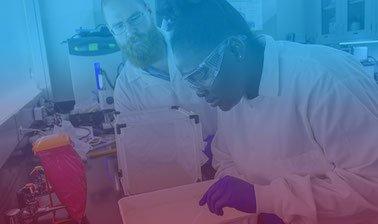MOOC List is learner-supported. When you buy through links on our site, we may earn an affiliate commission.

MOOC List is learner-supported. When you buy through links on our site, we may earn an affiliate commission.
Evolutionary medicine integrates an evolutionary biology and anthropology lens with current medical knowledge to enhance our understanding of human health. This class uses topics such as development and aging, human migration, mortality, diseases (infectious, metabolic, and autoimmune), and physiological and behavioral mechanisms of immunity to explore the broad arena of human health within a deep time and global context.
Using this perspective, we will investigate how human populations have co-evolved with microbes for millennia, how our changing environments intersect with our genes to shape phenotypes, how culture and other social factors may influence disease risk, and how to address current emerging health challenges across the globe.
What you'll learn
In this course you will learn:
- An applied understanding of evolutionary principles to human health
- Basics about the immune system
- Human population variation
- How changing environments influence virulence and disease transmission
-Biocultural influences on human health
Syllabus
Week 1: Introduction
This overview module will introduce the core concepts of evolutionary medicine that will be explored throughout the rest of the course.
Week 1: Why do we get sick?
An introduction to sickness behaviors and the immune system through an examination of subject-specific examples such as smallpox, tuberculosis, influenza, and other infectious diseases that have impacted our evolutionary history. We will introduce the concepts that form the basis of evolutionary theory.
Week 2: Why does selection leave our bodies vulnerable?
We will continue to explore how humans have evolved defenses against disease. We consider how our species evolved in environments quite different from our modern world, and how this results in mismatches and tradeoffs in our health.
Week 3: What can our evolutionary past tell us about our health in the present?
An introduction to co-evolution between humans and pathogens, and the factors that affect pathogen virulence and transmission. We’ll examine the “Old Friends” Hypothesis, vaccination, and the cross-cutting concepts of mind and brain evolution and social complexity.
Week 4: How can evolutionary medicine be used to tackle emerging and future health crises?
We’ll examine emerging and waning health threats including infectious and chronic diseases in a global and public health context while also considering changing environments and the impact on pathogenicity. In addition, we explore the applications of an evolutionary medicine perspective to our understanding of mental health. We will explore the idea of ongoing evolution and what that means for scientific research.
MOOC List is learner-supported. When you buy through links on our site, we may earn an affiliate commission.
MOOC List is learner-supported. When you buy through links on our site, we may earn an affiliate commission.
